More than 60% of employees get discouraged or frustrated by their bosses or coworkers at least once a month. Nearly half say it affects their mental health. 43% consider quietly quitting because of it.
The result? American companies spend $20 billion annually on direct workplace conflict resolution. That’s just the obvious stuff—not counting legal fees, settlements, or all the conflicts that never surface but still kill productivity.
25% of managers and 60% of HR staff deal with putting out fires instead of doing actual work. This is expensive. And it’s everywhere.
Enter the AI Therapist
A startup called Toughday raised $1.1 million to solve this with an AI assistant named Tuffy. But here’s what makes it different from every other workplace AI tool – Tuffy doesn’t help managers manage better. It helps employees navigate workplace drama before it becomes manager problems.
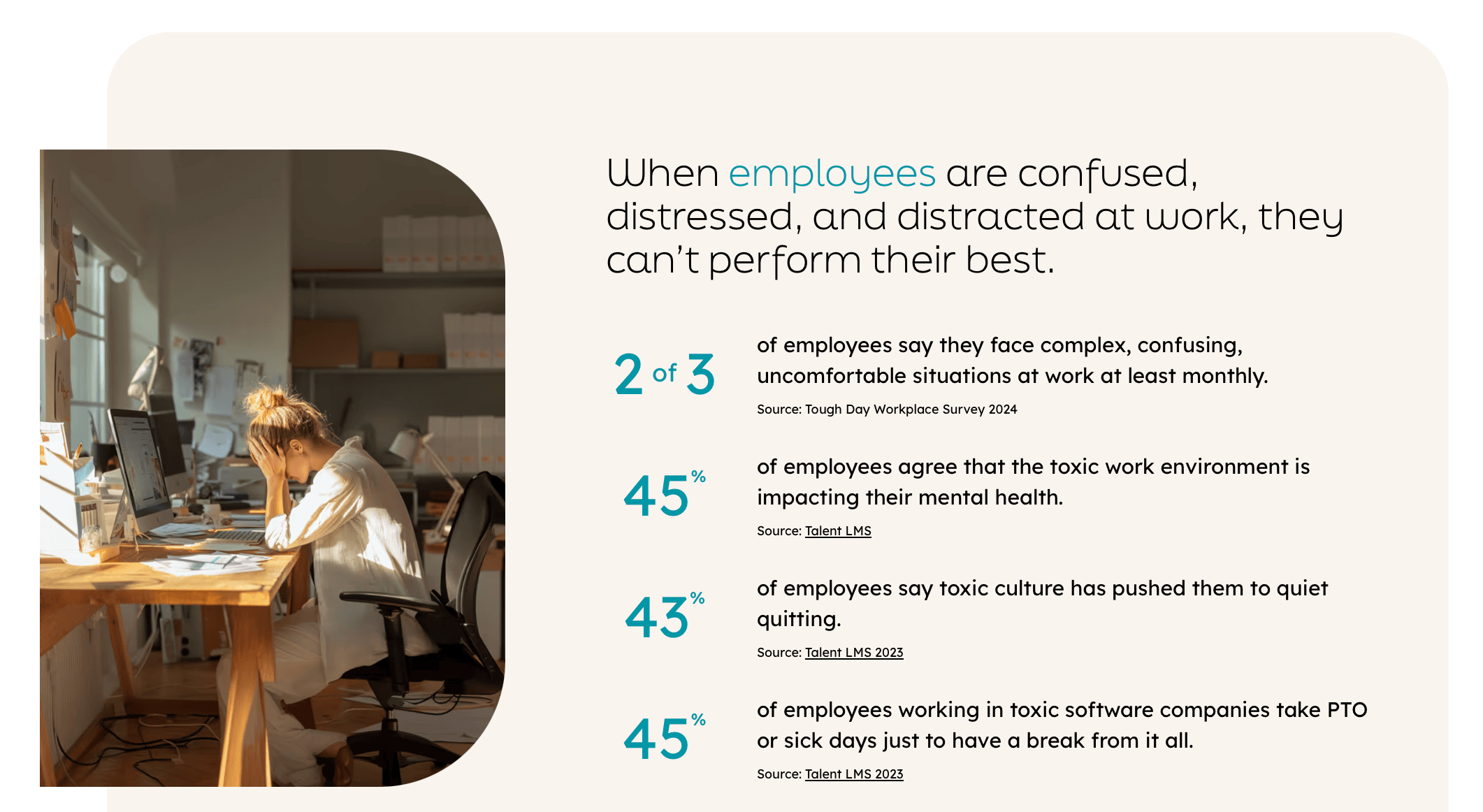
Employees chat with Tuffy directly. They ask questions about company policy, get advice on difficult situations, even upload performance reviews so the AI understands their context better. Managers and HR never see these conversations—just anonymous trend data.
New employees connect to Tuffy, which starts by explaining the company’s strategy, policies, and established procedures through regular communications. Then employees can ask Tuffy any questions about internal policies, procedures, or even request advice on how to handle specific situations.
With each interaction, Tuffy better understands each employee’s character and needs. Employees can upload documents like performance reviews to their personal “vault” so the AI assistant better understands their current situation.
Here’s the crucial part: managers and HR never see employee conversations with Tuffy. The platform only provides them with anonymized trending topics from these chats, so managers can monitor the overall company situation as employees see it.
The numbers are striking: 99.6% of users find Tuffy helpful. 88% use it at least monthly. Average employee uses it 14 times per month, spending about an hour total getting help.
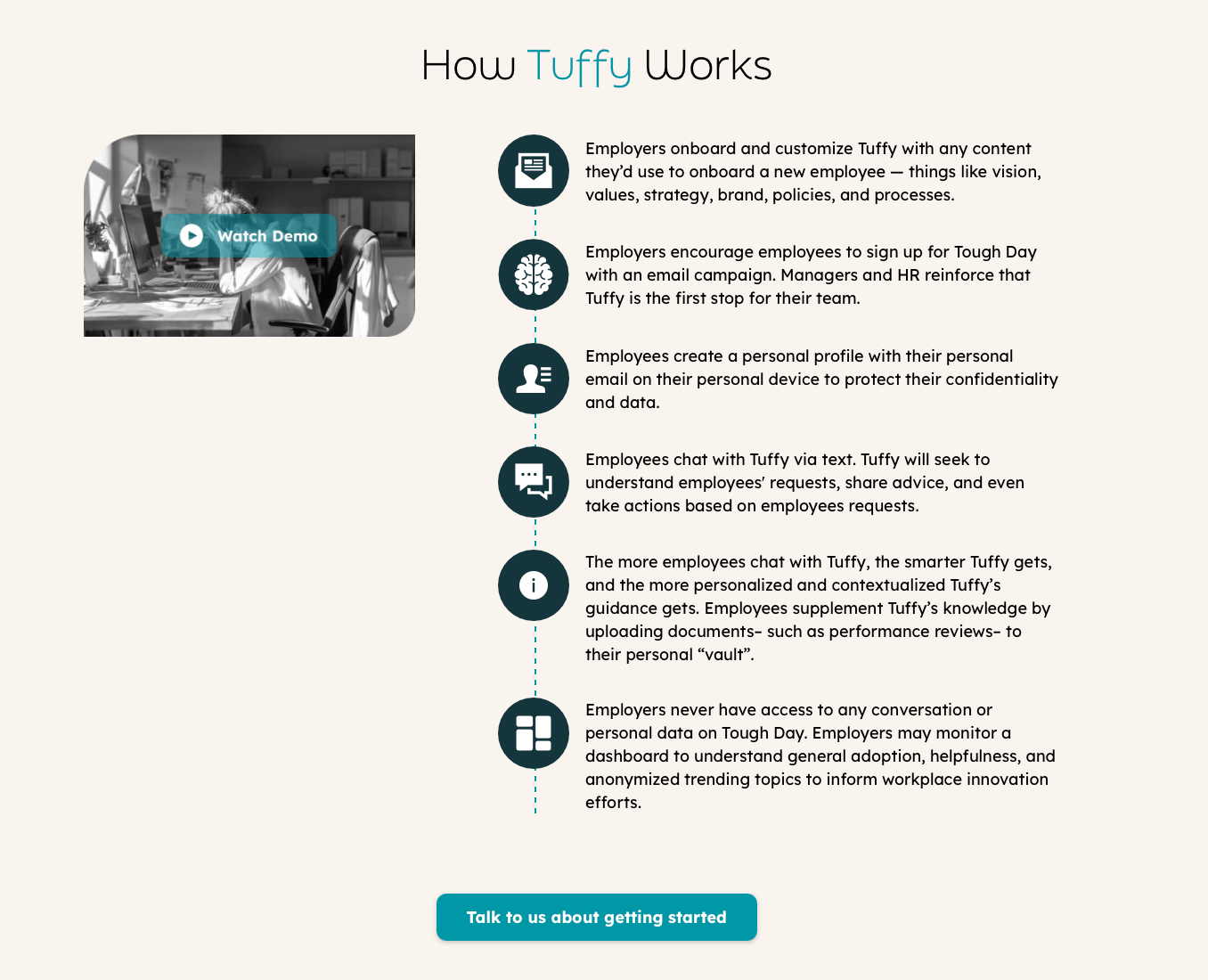
Why this works
Think about the last time you had a workplace conflict. Maybe your boss took credit for your work. Maybe a colleague threw you under the bus in a meeting. Maybe you got passed over for a promotion you deserved.
What did you do? Probably nothing productive. You complained to your spouse, vented to friends, or quietly started updating your resume. What you didn’t do was march into HR or schedule a difficult conversation with your manager. Most people hate confrontation and don’t know how to handle these situations effectively.
Tuffy fills that gap. It’s like having a workplace therapist available 24/7, except one that actually understands your company’s policies and culture.
The Bigger Pattern
This isn’t just about workplace drama. There’s a clear trend emerging around AI psychologists designed to resolve problems rather than improve good situations.
Tenor raised $5.4 million in their first round to build a leadership development platform. But here’s the twist: instead of generic leadership training, they focus specifically on teaching future leaders how to resolve workplace conflicts and handle difficult conversations with employees. Their AI creates simulated complex situations and forces users to work through them, then provides detailed feedback on how they handled the conflict.
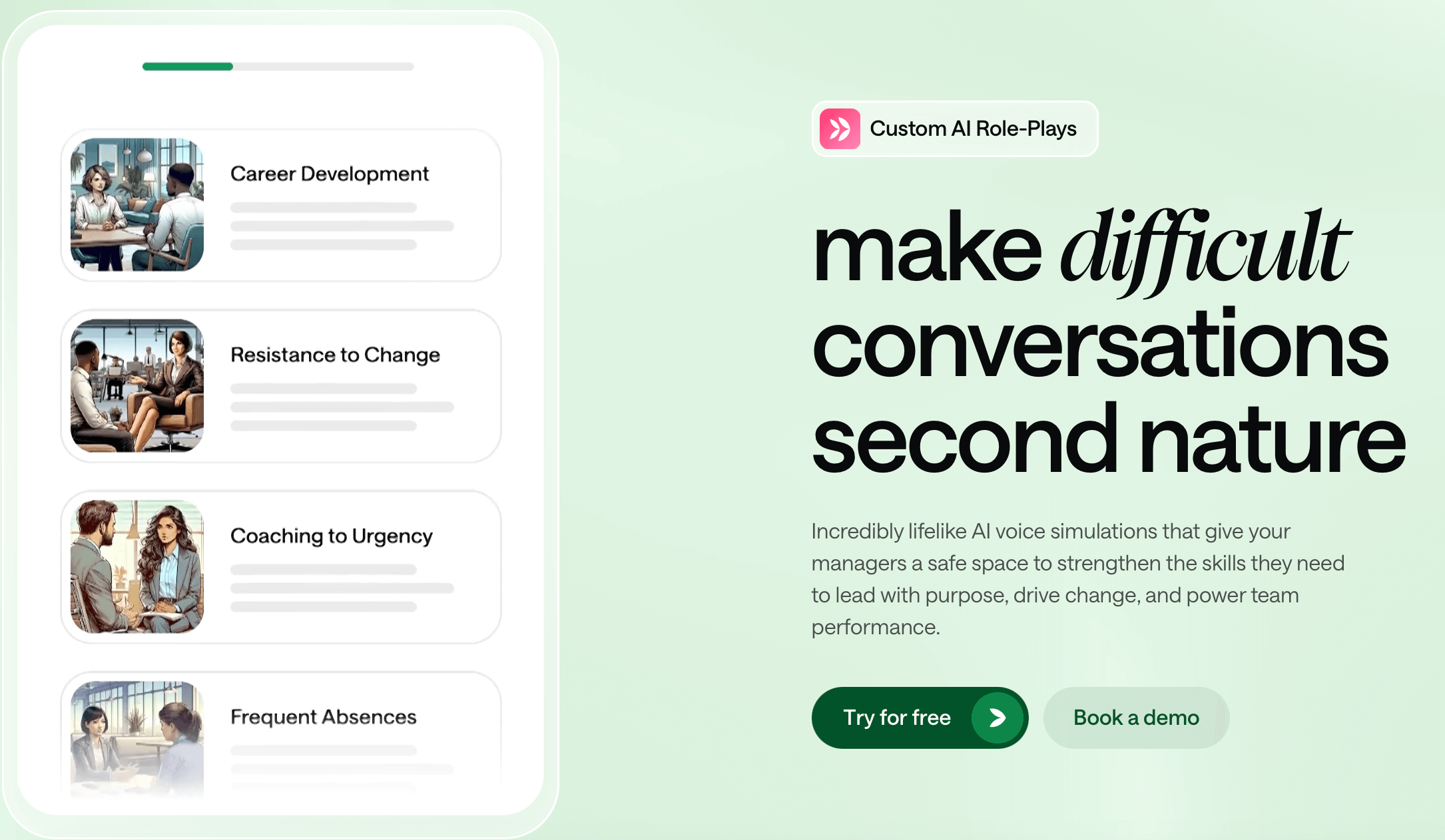
Kaiden AI pulled in $1 million for something completely different but following the same pattern—an AI simulator for emergency services. It teaches emergency responders how to properly communicate with people calling for help in crisis situations. Same concept: using AI to practice handling high-stress, high-stakes human conflicts before they happen in real life.
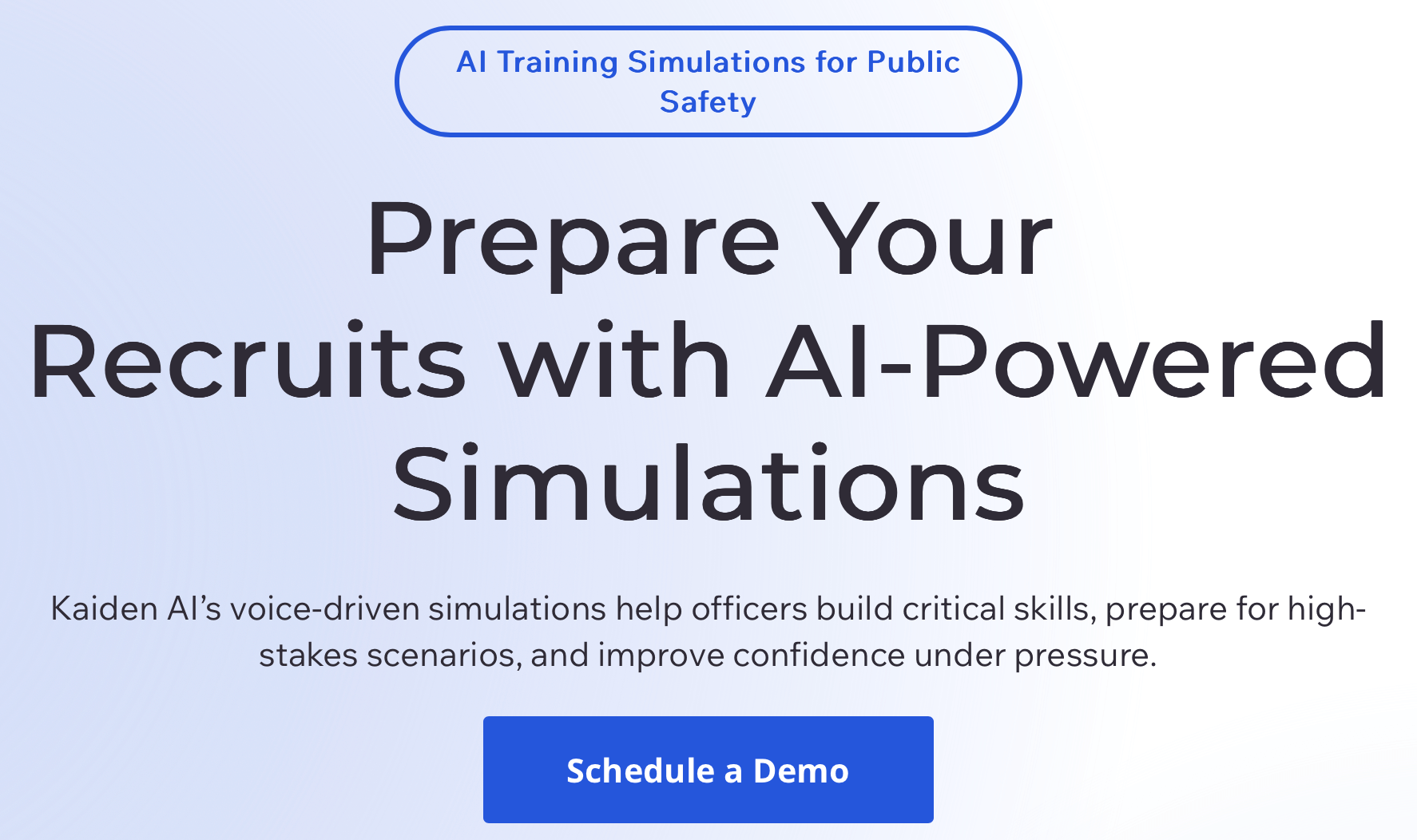
Maia came out of Y Combinator as an AI psychologist specifically for couples. Its main job? Resolving misunderstandings and conflicts in family relationships. Not helping happy couples become happier, but helping struggling couples work through actual problems that could destroy their relationships.

Rosebud raised $6 million in their first round for a personal AI mentor that helps people analyze negative feelings and experiences to understand their root causes and take action to eliminate them. The app helps users work through personal problems, many of which inevitably relate to work since work makes up such a significant part of most people’s lives.
Notice the pattern? Every single one focuses on resolving existing problems, not creating aspirational improvements.
The Opportunity
While everyone builds AI coaches for ambitious people who want to optimize their lives, the bigger market is frustrated people who need help dealing with reality. These aren’t aspirational problems. They’re real problems that cause actual pain and cost real money to resolve.
The insight: Satisfied people rarely need new solutions. Frustrated people desperately want them.
Companies already spend billions trying to resolve these issues after they explode. The smart play is building AI that helps people resolve them before they explode. This is especially true for workplace issues, where companies have clear financial incentives to pay for anything that keeps employees productive and reduces management overhead.
Think about it from a business perspective:
- Companies already budget for conflict resolution
- The cost of employee turnover is measurable and massive
- Managers and HR teams are overwhelmed and expensive
- Prevention is cheaper than crisis management
- ROI is easy to calculate and demonstrate
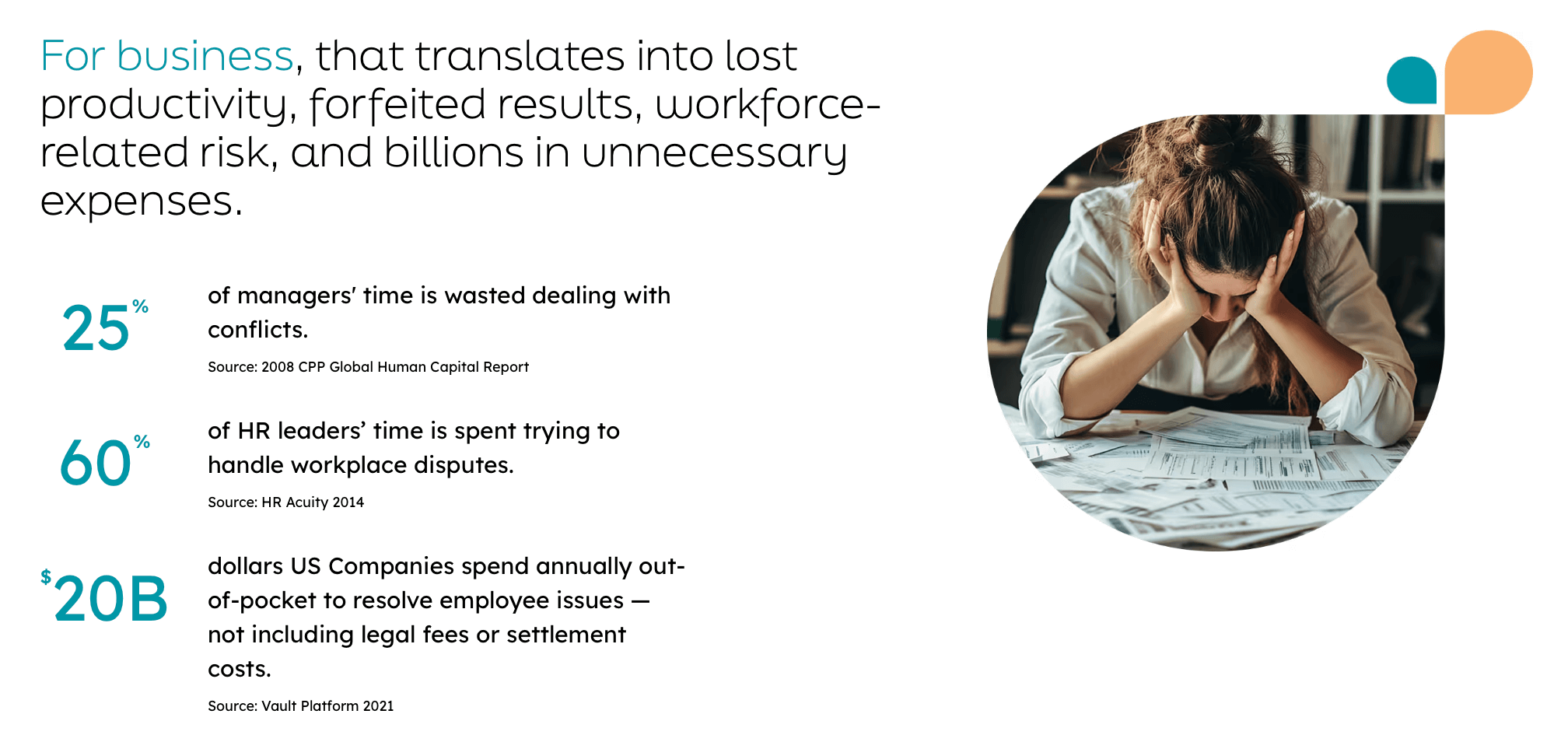
Plus, workplace conflicts follow predictable patterns. Same types of personalities, same kinds of situations, same underlying dynamics. Perfect for AI training. Unlike personal therapy or relationship counseling, workplace issues happen within defined systems with documented policies and procedures. The AI has a structure to work within.
Your Move
The next time you see someone building an AI life coach or productivity optimizer, ask yourself: who’s the target customer? Someone who’s already doing well and wants to do slightly better? That’s a tough sell.
But someone dealing with a difficult boss, toxic coworkers, or workplace drama they don’t know how to navigate? They’ll pay $20 a month for help. The future isn’t in helping good situations become great. It’s in helping bad situations become manageable. While everyone else builds AI for people’s aspirations, build AI for their frustrations.
Company Details: